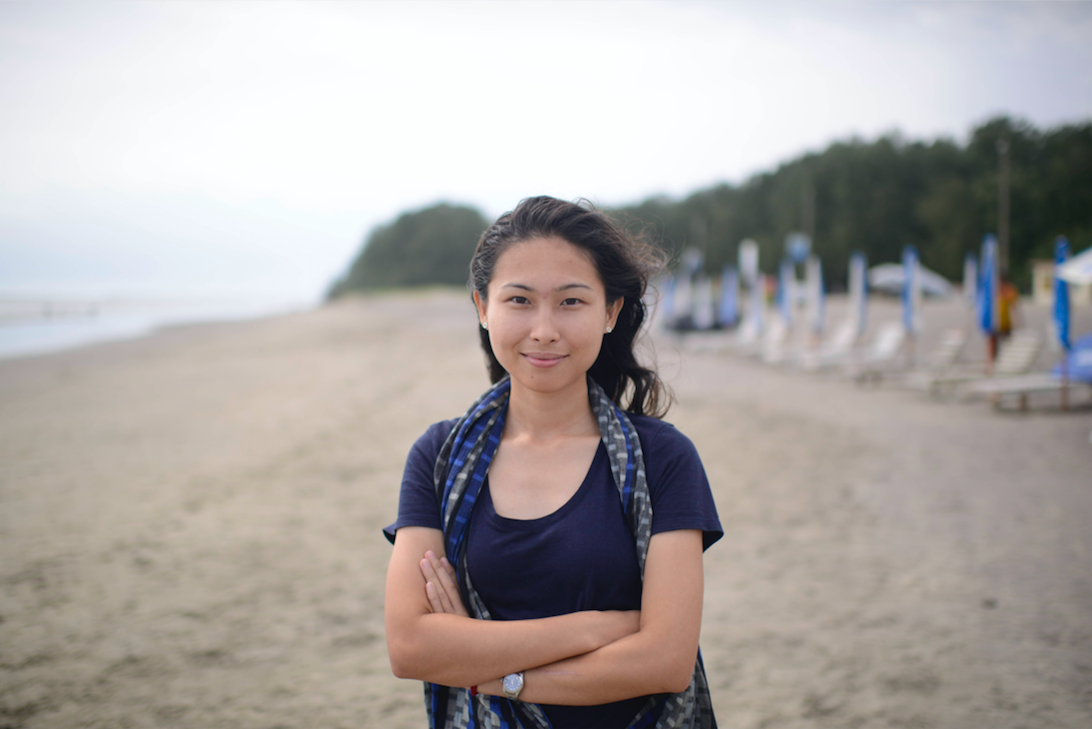“Life in refugee camps means survival against all odds. While living here the past will haunt you, and the present is to look at the bright side of life,” said Pragna Chakma the Chief Translator and Interpreter for Professional Translators and Interpreters Bangladesh (PTIB).
“There are families who haven’t had meat or fish since fleeing their country because they can’t afford it. Yet, when you ask them, ‘How are you?’ They’ll simply reply with a thank you.”
Pragna Chakma is one of the few female field translators in Cox Bazar, a fishing port in southeastern Bangladesh. She specialises in communicating with victims of gender based violence. “I know how to make subjects feel comfortable in such a way that they’re willing to share stories with us,” she told Jireh’s Hope. “There are not many female translators in Cox Bazar, and I’m proud to say that I’m one of them.“
As a translator, she listens to extremely traumatic stories from refugees, and she helps translate them as accurately as possible for the rest of us to hear and understand.
1. This all started during her first year at university where she used to see young children living in a railway slum near her campus.
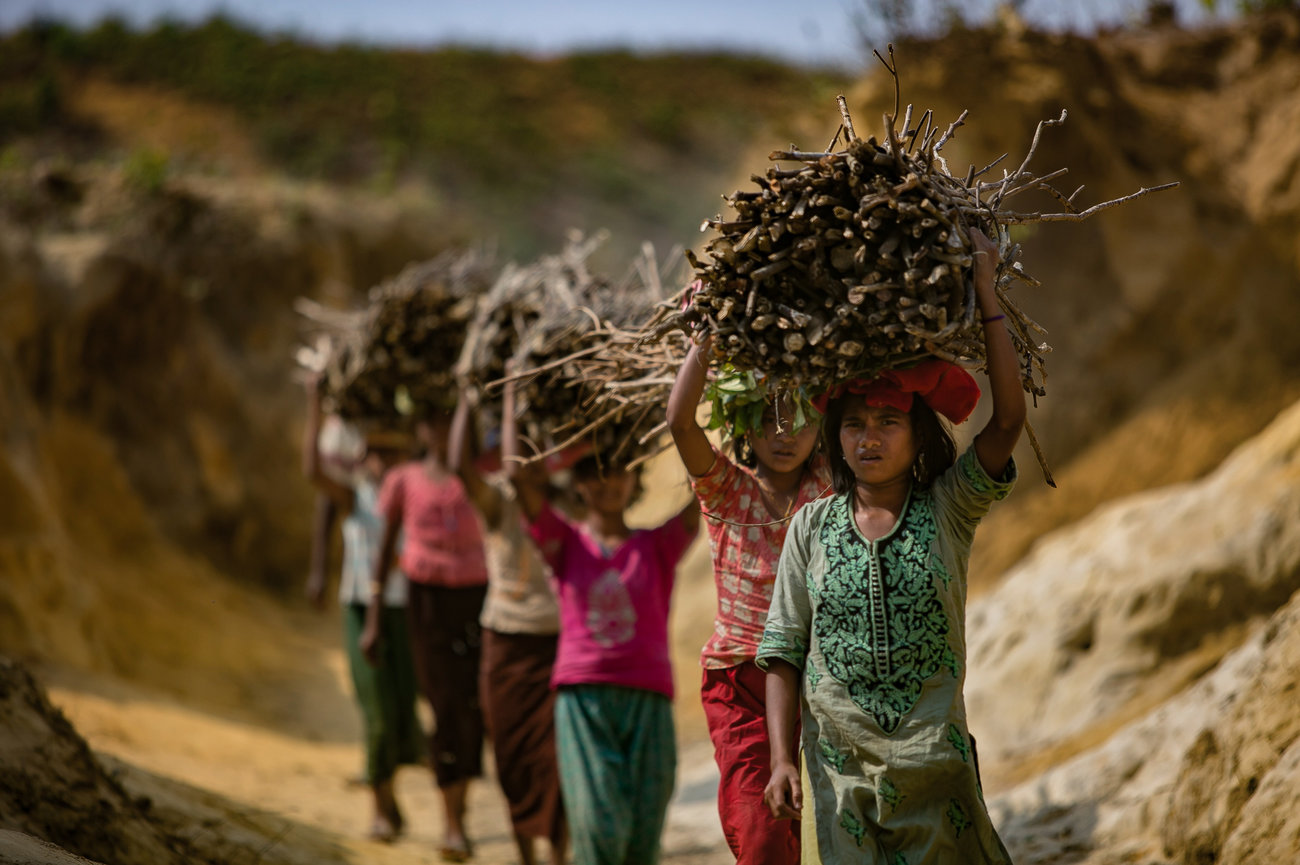
Image Credit: National Public Radio
These kids didn’t have an opportunity to go to school, and they’d often be involved in pickpocketing or begging.
“I wanted to do something to make their lives better but I didn’t know how. I came across The M Exchange, a project by Dr. Collins who works with people living in slums. I joined in as a volunteer in their free medical camps,” she mentioned. She became an interpreter to facilitate communication between the doctors and the slum dwellers as she didn’t have a medical background.
Since then, she has also helped documentary crews create subtitles for their videos, transcribed English text from Rohingya audio, and even translated press releases and documents.
She currently serves as the Chief Translator and Interpreter for the Professional Translators and Interpreters Bangladesh (PTIB). They provide a platform for capable youth to earn a living by working as professional field translators.
2. One of her first assignments as a field translator was with Allison Joyce and Corinne Redfern.
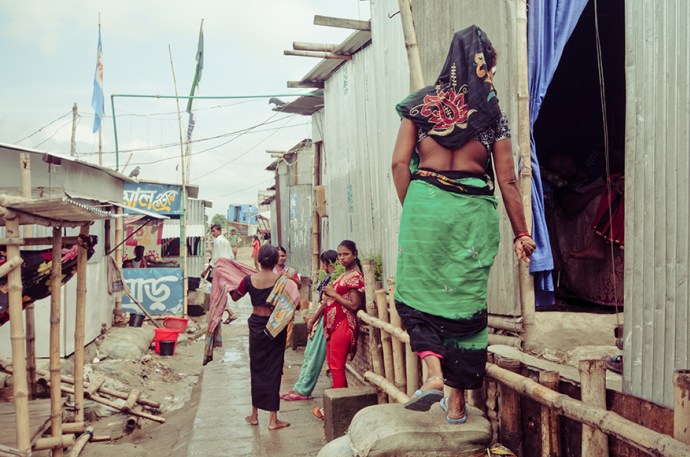
Image Credit: danielmelbye
“We spent a month on assignment in the largest brothel in Bangladesh – Daulatdia. We were documenting stories of the sex workers. Many of whom were trafficked at a young age and sold to the brothel,” she mentioned. “Allison told me that they had the hardest time finding a local female translator who was willing to visit an area that is generally considered to be sinful. In all honesty, I met some of the nicest women that I had ever come across in that brothel.”
Pragna also shared a wonderful experience that she’d remember for the rest of her life.
“One of the days in the field, I saw a lady who was cooking fish. She was a female sex worker. I asked if I could join her for lunch. She was taken aback, and she was in total joyous shock that I wanted to eat what she touched or cooked. Because 98% of the time, sex workers are seen as untouchable, dirty, outcast and as bad people. She sat me down, and even fed me with her own hands! Something only a mother would do for her child!”
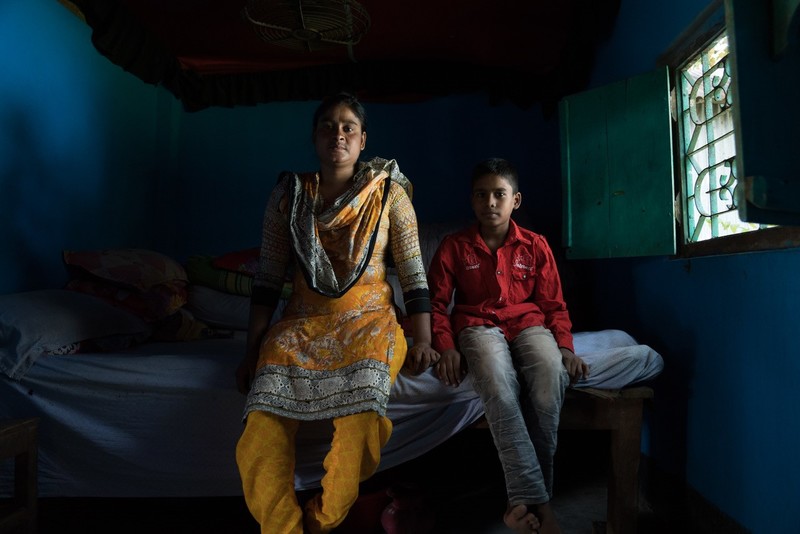
Image Credit: Radionz
“I have hundreds of experiences like this. Every experience has taught me to be thankful for what I have, to be humble, to love, to fight for dignity, to work harder, to accept people as they are, and try to do my part to the best of my ability,” she added.
Over the past 3 years, she’s worked with organisations like The New York Times, The Washington Post, Getty Images, Voice of America, The M Exchange, Magical Light Foundation, Girls Not Brides, among others.
3. In Bangladesh, Pragna works very closely with Rohingya refugees in what’s now the largest and most densely populated refugee camps in the world.
“Working at the camp is not an easy task that everyone can bear. It involves a lot of walking under the hot sun, in the rain, in the cold. It’s also dangerous for a female to wander around without any form of security. For me, this is something that I have adapted to. I dress modestly, I respect and treat everyone I come across as my brothers and sisters. So far I have never felt in danger,” she told us.
“It’s emotionally draining to see people suffer, and not be able to do anything to help them personally. I try to do my part by building friendships and encouraging the refugees to speak out about the horrors that they have endured.”
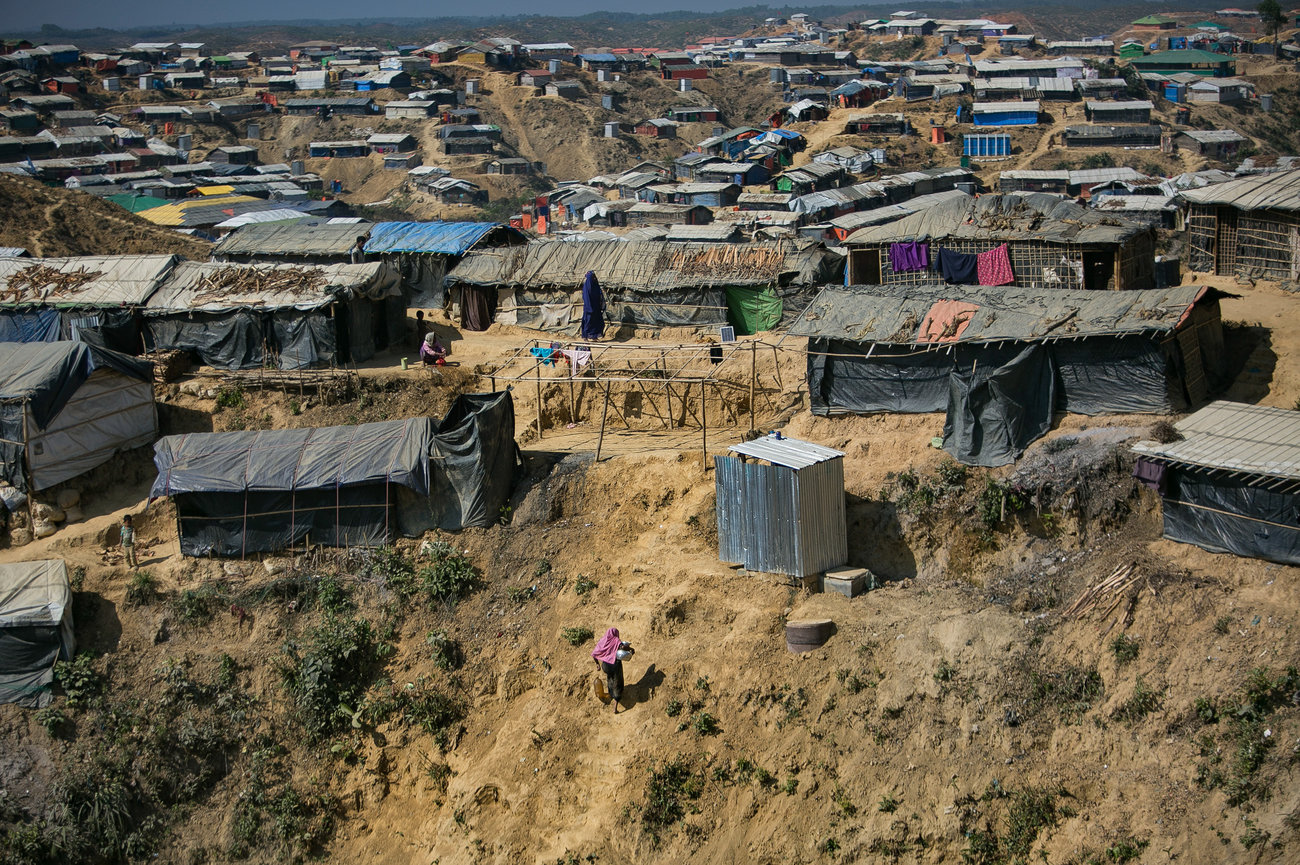
Image Credit: National Public Radio
Furthermore, the camps have no electricity, and it turns pitch dark once the sun sets. There aren’t any conventional school to educate kids. Children beyond the kindergarten stage are deprived from the education.
And refugees aren’t allowed to work as it’s illegal. This results in some of them engaging in activities that are illegal and harmful. “Adolescents and women are being trafficked with the false hope of work or a better life. Young refugees need entertainment and uplifting work,” she mentioned.
4. Despite the harsh conditions, humanitarian organisations work at full capacity to ensure the refugees have a fair chance to survive.
With support from the Bangladesh government, multiple international groups have setup clinics and hospitals to provide healthcare. They’ve created many friendly spaces in order to develop a safe and joyous community.
Furthermore, information centres, radio channels to spread information, rations, shelter, and survival kits are provided to the refugees that live there. Some of the families that are at risk of landslide due to the monsoon are also relocated to safer areas.
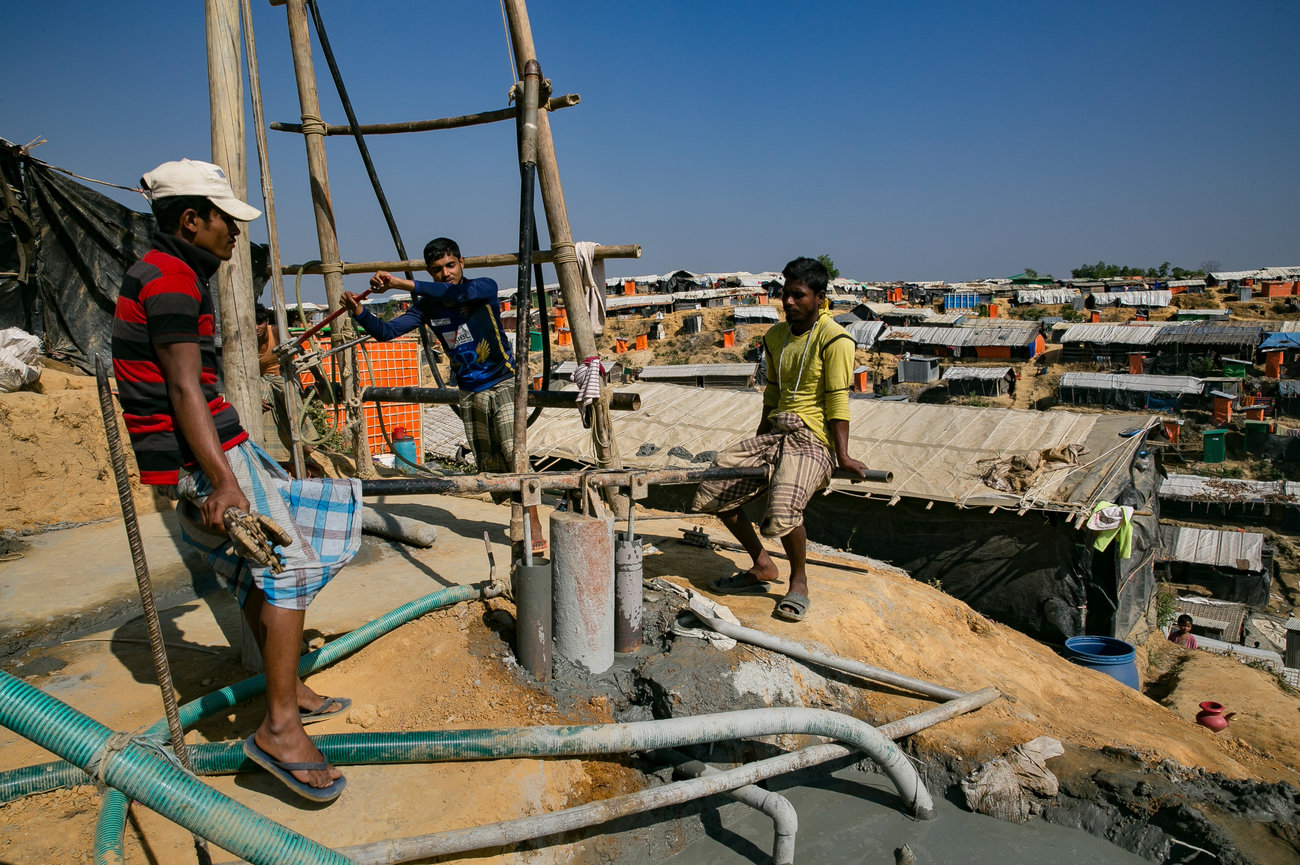
Image Credit: National Public Radio
The Rohingya volunteers are receiving training on how to live in harmony with nature and wild animals as the camp was once a jungle, and a migratory pathway for wildlife.
“Although everyone is doing the best that they can, it’s still not enough. We must do more,” she added.
5. “As an advocate of minority rights, working in refugee camps has been an absolute privilege for me,“ Pragna said.
The refugee crisis is something she understands as her own family and relatives were once displaced from their own land in the Chittagong Hill tracts of Bangladesh.
“They are no different from every other human on this planet. If you go to their small shacks, they’ll welcome you warm heartedly. They’ll offer you food from their own plate. The refugee kids living in camps are stateless.
This means that they don’t have access to education, health care or basic human needs. They deserve the same as our children. To the world, it’s high time we find a permanent solution for the Rohingya refugees,” she proclaimed.
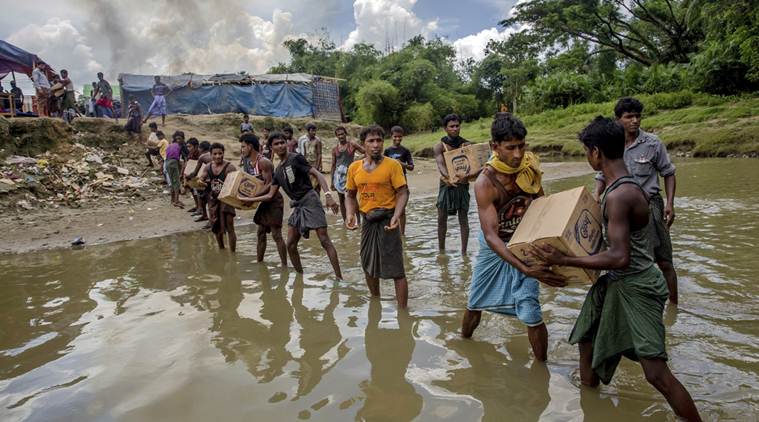
Image Credit: The Indian Express
“My personal experiences and the responsibility as a conscious human being motivates me to keep working with the disenfranchised in refugee camps.”
Pragna believes that her work as a translator has helped shape her in a better way. It taught her to be more patient with life, be grateful, and it has rewarded her both personally and professionally.
“It’s been a great journey! I feel blessed to be able to use my talent to build bridges between people. I feel powerful because I help voiceless people to be heard,” she said. “Working as a translator has allowed me to travel the most uncommon places during unconventional hours and opened my eyes about issues that we need to work on.”
You can follow Pragna Chakma on Twitter, and leave her a few words of encouragement.

